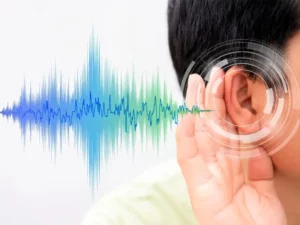
Explore the various types of hearing tests, which are designed to identify the specific hearing condition and what you should anticipate during these testing processes.

Loss of hearing is a widespread issue impacting countless individuals across the globe. It can occur due to various reasons, such as ageing, exposure to loud noises, or certain medical conditions. If you suspect that you or a loved one may be experiencing hearing loss, it is important to get a hearing test done to determine the extent of the problem and find the right treatment. In this article, we will discuss the different types of hearing tests available and what you need to know about them.
Hearing tests, also known as hearing exams, are essential for diagnosing hearing loss and determining the best course of treatment. They can also help identify the type and severity of hearing loss, which can vary from person to person. Additionally, hearing tests can also detect other underlying medical conditions that may be causing hearing loss, such as ear infections or tumours.
Before we dive into the different types of hearing tests, it is important to understand the two main types of hearing loss: conductive and sensorineural.
Conductive hearing loss happens when there’s an issue with either the outer or middle ear, like a blockage or harm to the eardrum or the bones. This type of hearing loss can often be treated with medication or surgery.
Sensorineural hearing loss, on the other hand, is caused by damage to the inner ear or auditory nerve. This type of hearing loss is usually permanent and can be caused by ageing, exposure to loud noises, or certain medical conditions.
There are several types of hearing tests available, and the type of test you need will depend on your specific situation and symptoms. Here are the frequent kinds of hearing tests conduct:
Pure Tone Audiometry
Pure tone audiometry is the most common type of hearing test and is used to determine the softest sounds you can hear at different frequencies. During this test, you will wear headphones and be asked to respond when you hear a sound. The results are plotted on an audiogram, which is a graph that shows your hearing thresholds at different frequencies.
Speech audiometry is used to assess your ability to understand speech at different volumes. During this test, you will be asked to repeat words or sentences at different volumes and in different background noise levels. This test can help determine the severity of your hearing loss and how it affects your ability to communicate.
Tympanometry is a test that measures the movement of your eardrum in response to changes in air pressure. This test can help identify problems with the middle ear, such as fluid buildup or damage to the eardrum or bones.
Otoacoustic emissions (OAEs) refer to the sounds generated by the inner ear when it is stimulated by external sounds. This test measures these emissions to determine the health of the inner ear. It is often used to screen for hearing loss in newborns and young children.
Auditory brainstem response (ABR) is a test that measures the brain’s response to sound. It is often used to diagnose hearing loss in infants and young children who are unable to participate in other types of hearing tests.
If you are experiencing any symptoms of hearing loss, such as difficulty understanding speech, ringing in the ears, or muffled sounds, it is important to get a hearing test done. Additionally, if you are over the age of 50, it is recommended to get a hearing test every 3 years, even if you do not have any symptoms.
Before your hearing test, it is important to prepare by doing the following:
In a hearing examination, there are several things you can anticipate:
After your hearing test, the audiologist will discuss your results with you and recommend the best course of treatment. This may include hearing aids, medication, or surgery, depending on the type and severity of your hearing loss.
Hearing tests are essential for diagnosing and treating hearing loss. There are several types of hearing tests available, and the type you need will depend on your specific situation and symptoms. If you are experiencing any symptoms of hearing loss, it is important to get a hearing test done as soon as possible. With the right treatment, you can improve your hearing and quality of life.

Daniel Johnas is an audiologist at HealthQuo. He got his Bachelor's degree in B.Sc. (HLS) from AYJNISHD, Mumbai and received training from Dr. Joseph Stemple. Professor at the University of Kentucky in the domain of voice rehabilitation for professional voice users. He did his training at Tata Hospital and received certifications to work on the rehabilitation of speech and the treatment of swallowing issues for those with head and neck cancers. With experience in the field since 2007, Johnas is currently also the head of the Speech and Language Department at Bethany Neuro Rehab.



©️ 2023 HealthQuo. All rights reserved.
Website by DARIS